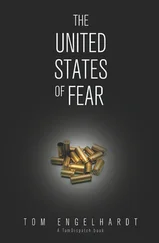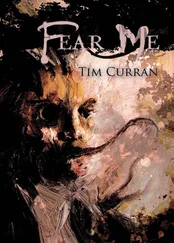When I got there I saw a figure standing at the door who sent a chill through me. Tall, dressed rather crudely, thin, with a cotton eye turned out perhaps thirty degrees to the side. He wore a hideous brimmed hat made of some sort of oily-looking leather.
I asked how I might help him.
He said, “I’d like to speak to the proprietor, if I might.”
“Did you inquire at the box office? The theater isn’t open yet.”
“Yeah,” he said, smiling slightly. “They told me to come around back here.”
“What does this concern?”
“Are you the proprietor?”
“I am the manager of the Virginia Harmonists,” I said.
“That’s all right,” he said. He had an unpleasant smile, a kind of sneer that curled his upper lip. “Can I come in?”
I had absolutely no reason, nor desire, to invite this man inside, and I said, “I am in the middle of working at the moment. Please state your business.”
“Sure,” he said. “I’ve been hired to find and return contraband, ran off from Virginia. He’s a musician and I’m checking with theaters to see if they might know anything.”
“Negroes aren’t allowed onstage in Philadelphia.”
“Yeah,” he said, chuckling as if I had said something amusing. “I know that. But I figured maybe he’d want to be around theaters. So nobody has turned up looking for work?”
“No,” I said.
The man squinted at me, with that curled-lip smile. “You sure about that?”
“I imagine that I am quite sure.”
“Oh, all right. I was just checking. You looked like you might not have been too sure. This fellow’s light-skinned, green eyes, plays the banjo. His owner says he’s smart and thinks he’s as good as a white man. Somebody taught him to read. His name was Joseph, but he probably changed it.”
It took all my will to keep my face a blank.
“No?” he said, again, looking at me as if reading fine print. “Well, if you talk to anybody who does, or if you hear anything, you can get a message to me here.” He gave me a card with a handwritten address of a rooming house on Eighth Street.
“Certainly,” I said.
“Hey,” he said, “I heard you have the best nigger show in town. I’m going to see it before I leave.”
I tried to locate an appropriate response. “That is fine,” I said. Then, I asked, “When do you leave?”
“That’s still kind of up in the air,” he said. “It depends on how quickly I find the boy.”
“Of course,” I said.
He nodded, still looking at me, with a slight squint, then he left.
I shut the stage door and walked to the dressing room.
Once there, I sat down, nearly overcome. For a few moments I was certain that I would be sick to my stomach, and I lay my head on the dressing table.
I had no way of getting word to Henry; I would not see him until the next evening’s performance. Why had he not proceeded to Canada if he was in such jeopardy? Wouldn’t it have been natural to assume that his owner would send someone to find him? I was stunned by the recklessness of his deception. And he had lied to me.
Later that evening, Thursday, I began my preparations, amongst my colleagues, for the show, but my mind was on fire. As they joked and gossiped, I spread the cork across my forehead and down my cheeks, smoothing it, evening out the opaque coat.
I was born neither blind nor stupid. I knew that the Negroes we depicted so fancifully were, in real life, subject to harsh treatment and compulsory labor. And worse. I knew it, yet the images of Negroes that we summoned represented such a release from oppressive fact that they had become a necessity, for ourselves and for our audience. I had let myself be deceived, though I should have known better. And now, from behind that beautiful, pernicious illusion, reality had come snarling.
It was one thing to dare convention by presenting a Negro in disguise. It was another to harbor a fugitive and to conceal him from his owner’s agent. Such an act had legal ramifications that far surpassed those implicit in simply presenting a Negro. He had put not only himself at risk, but all of us. What, exactly, did I owe him now — this brilliant illusionist and vital presence, this reckless liar and manipulator, who had used me and placed our troupe at risk?
And, yes, whom I had used, and manipulated, as well.
Sitting at the dressing table, besieged by these questions, I caught my reflection in the mirror, staring back at me from behind its black mask. What did I owe, and to whom?
Rooming house off Sansom on Eighth Street. Dust motes in the stale air. The wash basin, chipped porcelain, the pitcher inside. The green chenille bedspread on the single bed, bowed down in the middle, and a framed print of a cat on the wall. The faded hooked rug a small island on the worn wood floor.
He hated cities. He had been in Philadelphia for most of a week and had turned up nothing. It had been four days’ riding to get there. He had spent the last night before his arrival at the Warfield farm, ten miles out of town to the west. From Warfield’s city directory, he made a list of furniture makers and dealers, as well as music stores. He had included theaters as well; a boy interested in music might get a cleanup job in one of them, just to be around it. The riverfront saloons were likely places if the boy were playing on the street. The main police station was in the City Hall, at Chestnut and Fifth, although police were, in his experience, useless. What they called Darktown was in the south part of the city, around Lombard and Sixth, seeping out westward. That would be his final stop, only if nothing else panned out.
Slaves, he liked to say, thought in fragments. They had no idea of the big patterns. They saw things in flashes. They had no conception of the future. What future did they have to plan for? It was given to the white man to see the larger picture. He had formed an image of this Joseph as a spoiled boy who liked attention, who thought anything was possible because Master was his daddy. Tull’s specialty was foreclosing possibility.
His first stop, four days earlier, had been the police headquarters, a large, barely furnished room in City Hall, sun pouring in through high windows and across the varnished wood floor, a single desk on the left side and one on the right, facing each other. At the nearer of the two, a man with sandy hair and sideburns, eating an apple. Opposite, a black-haired fellow with a low forehead, clean-shaven, every few seconds tossing a cherry pit across the room at the other. On a bench at the far end, a plump man, wearing a squat black hat with a narrow, shiny brim — a ridiculous-looking hat — speaking to the room at large, while its occupants ignored him.
“You could put a ferry boat farther south on the Delaware. My cousin was a ferry boat man, made good money doing it. They have a beef brisket now at Dodge’s, but you have to buy a pint. Beef brisket causes goiter, but I’d take the chance. The gravy runs out of it; I saw one of those turnbottoms lick it off the side of the dish. Right off the side of the dish. .”
Tull stood inside the doorway, waiting for someone to acknowledge him. The man on the bench did not break stride in his commentary, but shifted his attention to Tull.
“Now there’s a man looks exactly like my cousin Alfred. Alfred had a perfectly good job at a countinghouse, but he couldn’t find a wife. Now there is a hat. That’s leather. A milliner on Twelfth Street will make a hat out of any material whatever. .”
The sandy-haired man finished his apple and, still impassive, tossed the core at his tormentor across the room. It struck the wall behind the other man. Finally, he addressed Tull without looking at him.
Читать дальше










